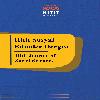Şatıbi’ye Göre Mesalih-i Mürsele ile Bid’at Arasındaki Farklar
İslam hukuku bilginlerinin müşterek kabulüne göre dini hükümlerin nihâî hedefi “celb-i maslahat ve der-i mefsedet”tir. Bu sebeple maslahat ve mefsedetin şer’î sınırlarının belirlenmesi İslam hukuk usulünün önemli konuları arasında yer almıştır. Ayrıca bazı fıkıh bilginleri dünyevi fiillerde insanları maslahat arayışına sevk eden sebeplerle, dini fiillerde bid’ata sevk eden sebepler arasında mahiyet birliği kurulduğunu tesbit etmişlerdir. Zira uhrevi aleme inanan insan için tek başına dünyevi maslahatı önemseyip, uhrevi maslahat ve menfaati göz ardı etmek söz konusu olamaz. Bu inanışın ve anlayışın tabii bir sonucu olarak bu insan, nasıl dünyevi alandaki maslahatlarının çoğalmasını veya bu alanların genişlemesini hedeflemişse, dini alanda da kendisini Allah’a yaklaştıracak vesilelerin artmasını talep etmiştir. Ne var ki bazen bu talepleri meşru bir çerçeveye oturtmak mümkün olmamıştır.
Anahtar Kelimeler:
Makâsıdu’ş-şerî’a, Masâlih-i mürsele, maslahat, mefsedet, bid'at
Differences between the masalih-i mursala and bid’at according to Şatıbi
According to the scholars who study on the Islamic Jurisprudence the target of divine ordinances is two concepts called “ celb-i maslahat” and “def-i mefsedet”. That’s why to define the religious limits of these concepts is one of the most important subjects in systematical Islamic jurisprudence. In addition some of the scholars have confirmed the similarities between the efficient causes that impel the scholars into searching for a good causes in the worldy deeds and the causes impel to apocryphal (bid’at) in the religiously deeds. Because a person who believe in the next world has to consider two concepts worldly and the worldly right things “maslaha” at the same time.
Keywords:
Makasıdu’ş-şeri’a, Maslaha, masalih-i mursala, mefsede, Bid’a,
___
- David Ray Griffin, God and Religion In The Post modern world, State University of New york,1989.
- ISSN: 2757-6957
- Yayın Aralığı: Yılda 2 Sayı
- Başlangıç: 2020
- Yayıncı: Hitit Üniversitesi
Sayıdaki Diğer Makaleler
Kötülük Problemi, Yaklaşımlar ve Eleştiriler
Şiddet İçerikli Bazı Rivâyetlerin Tahlîli ve Tenkîdi
Kasım b. İbrahim ve Hıristiyan Teolojisi
Anadolu Müceddidîlerine İlişkin Bazı Tarihî Bilgilerin Kullanılışı Üzerine Bir Değerlendirme
Yiyecek-İçeceklerde Haram-Helalliğin Kriteri ve Bu Konuda Arap Kültürünün Etkisi
Kur’an’daki Belirsiz Anlatımlar/Mübhemât Sözlü Dil Bağlamında Bir Yaklaşım
Kur'an'ı Anlamada Müslüman İlahiyatçıların Metodolojisi
